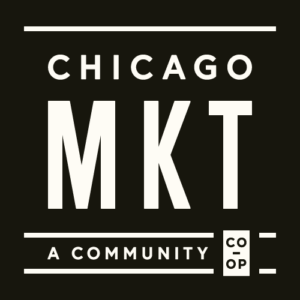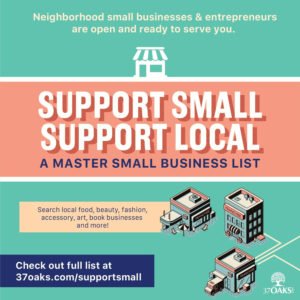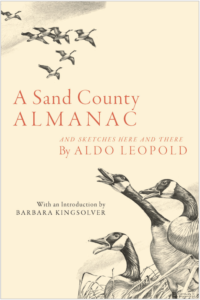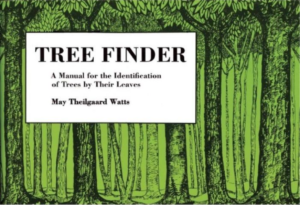Go Local (Not Loco)
I’m a big fan of the dictionary, just like my dad. When I was growing up and didn’t know how to spell a word, he’d suggest that I look it up in the dictionary. I’d always protest that I couldn't because I didn’t know how to spell it! But he was right. I could generally guess the first letter and then I’d use trial and error from there, plus I’d also discover other words. These days, I often look up words to check if I had the meaning right or if there were a nuance I’d previously missed. I’ve been thinking a lot about the concept of local lately.
Dictionary definition of Local: Belonging or relating to a particular area or neighborhood, typically exclusively so.
We’ve been trying to support our local, independent businesses, particularly those in our composting community. I’ve been doing that by reposting their posts on Instagram with a hope to encourage you to go local.

I’ve also learned about three different Chicago small business guides, all created because of the COVID-19 crisis. They’re all a little different. Our friends at Chicago Market - A Community Co-op created one on their website called Shop Local. You’ll see Collective Resource Compost in the Shop businesses section. Other sections are Shop farms, Shop restaurants and a special "Need help with food?" section for the food insecure. Inside the Shop restaurants section is a guide called Dining at a Distance. This great tool started in Chicago but has expanded to include national and international cities.

Another one that has popped up is called Shop in Place Chicago. This site is a project of the Institute for Justice’s Clinic on Entrepreneurship at the University of Chicago Law School. It is but one of the great resources that this organization has created to help in this crisis. You can find out more at ijclinic.org.

The third is on the website of 37 Oaks, a commerce consulting business based in Oak Park, that has partnered with ChiBizHub (World Business Chicago) and many community-based organizations throughout the city to curate a Master Small Business List that makes it easy to support small and support local when you are ready to make a purchase. You can filter the list by neighborhood or category.
I recently joined a book group. We read mostly nonfiction nature writing. This month we read a book called A Sand County Almanac by Aldo Leopold. The small paperback copy that I got also includes Essays on Conservation From Round River. The almanac section is arranged by month and appears to have first been printed in 1949. Leopold lived in Madison, Wisconsin but also had a farm in nearby Sand County from which most of the almanac writing was based. If you are interested in learning more about him visit The Aldo Leopold Foundation website.

One of the concepts he wrote about that has stuck with me is in the beginning of the December section. The concept is Home Range. He was curious about the various home ranges of the creatures that lived on his farm, how well they knew their range and if he knew his range as well.
At the time of writing this blog post, we are all sheltering at home, smack dab in the middle of the COVID-19 crisis, so our home ranges have gotten considerably smaller. Now seems like an ideal time to really get to know them.
Definition of Home Range: An area over which an animal or group of animals regularly travels in search of food or mates, and which may overlap with those of neighboring animals or groups of the same species.
Did anyone else chuckle at the word mates?
I just moved into a slightly new neighborhood and I’m amazed at all there is to explore. I’m challenging myself to get to know all of the nooks and crannies. The streets, of course, but also the alleys. And not just the names of the streets but knowing what street I’m on based on the buildings.
I’m also really interested in the trees. Here in Evanston we have a terrific history center and you can go there to research buildings, but I wonder if anyone is keeping track of the trees.
I picked the apartment I’m living in because of the pine tree that is outside my living room window. It’s giant and gets a lot of visitors. I saw a crow on the branch right outside my window this week and it took my breath away! But I don’t know what kind of pine tree it is.

I remembered that I had once bought a book that might help me to remedy that situation. It’s called Tree Finder: A Manual for the Identification of Trees by Their Leaves by May Theilgaard Watts. This is another book that was written a long time ago but is still relevant today. It is pocket-sized and has delightful illustrations. I was surprised to learn that the author was born in Chicago and lived in Chicagoland. She worked for years as an educator and naturalist at Morton Arboretum. She seems like someone I would have liked to know.
This month I discovered that Evanston Made, a local arts organization, created a coloring book for Earth Month called Evanston Loves Nature. Our very own Rachel Rosner provided some of the written content. It’s free and you can pick and choose what pages you’d like to print. Download it evanstonmade.org/evanston-loves-nature-coloring-book/. I enjoyed reading it. Some of it is very Evanston-specific but my favorite page of the coloring book suggests that you find a quiet spot out in nature and in the quiet, notice the closest, tiniest thing.
Now that’s local!